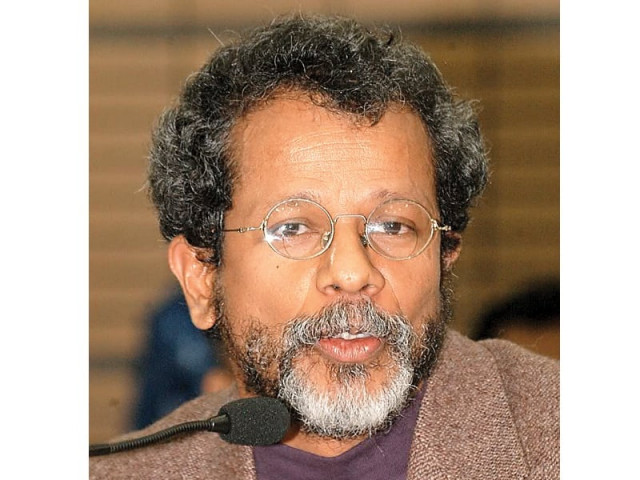‘Federalism has not failed in Pakistan, it simply hasn’t been given a chance’
Senator Rabbani, the 18th Amendment’s head architect, speaks about its implementation

At the first day of an international conference organised at Karachi University, experts analysed how the system works in Pakistan.
The university’s Area Study Centre for Europe, in collaboration with Hanns Seidel Foundation, a German non-governmental organisation, had organised the event. Professors were flown in from beyond the border to share a wealth of information about how the system operates in their respective countries.
Some experts regard federalism, a form of governance where power is shared between a centre body and various federating units, as a potent method to quell separatist tendencies in countries with diverse ethnic groups. Lower tiers of the government are more connected to the people and can therefore cater to their needs much better. For instance, a local government can arguably understand and meet Karachi’s needs much better than people working in offices cradled by Margalla Hills over 1,400 kilometres away.
Pakistan’s experience
Very aptly, Senator Mian Raza Rabbani, who was at the helm of the commission that sought to devolve powers from the federal government to the provinces, had been invited as the chief guest. He dug into his own experience and issued a caveat: simply mimicking federal structures in other countries just won’t cut it. “When we were drafting the 18th Amendment, we looked at various federating countries’ constitutions - but in the end, it boils down to a homegrown solution, given the particularities in the levels of development as well as education and strength of institutions.”
Rabbani refuted the notion that the messy tug-of-war between the centre and provinces had pointed to the failure of federalism in the country. He said that the system simply hasn’t been practiced here. “If it had, the country would have never been dismembered in [1971].”
The 1973 Constitution, which many regard as a giant leap forward for federalism in Pakistan, gave a lot of scope to the provinces to flex their muscles. It led to the formation of the Council of Common Interest, a body with an equal number of ministers from each province, to resolve conflicts. But it has met a mere 11 times since then.
“The quantum of autonomy in the 1973 Constitution could never see the light of day because of the civil-military bureaucracies warped interpretation of its articles,” said Senator Rabbani. He also lamented the fact that the multiple periods of martial law had stunted the devolution of power to the provinces.
Fresh attempt, old problems
The 18th Amendment, passed by the Parliament in 2010, was an attempt to wrench power from the centre. Under this many social services, including healthcare and education, were devolved to the provinces. Yet federalism has not been emancipated from the tight grip of the bureaucracy.
“They think that the heavens will fall if syllabi are tailored in Karachi, Lahore or Peshawar [as opposed to Islamabad,” said the senator. “What is the harm if people in Lahore study about Bhagat Singh? Did he not stand up to the imperialist powers? We are being fed a distorted version of history created by the civil-bureaucratic elite in Islamabad so that they can further their own interests.”
Prof. Imtiaz Ahmed from the University of Dhaka, Bangladesh, delivered the keynote address in which he said that the concept of provincial autonomy is poorly understood in South Asian countries. Prof. Ahmed added that in countries like Pakistan, people conflate democracy with elections. “Democracy must also flourish within the structures of political parties. If it doesn’t, democracy will flounder.”
Correction: An earlier version of this story had an incorrect caption in the picture. The error is regretted.
Published in The Express Tribune, November 7th, 2012.


















COMMENTS
Comments are moderated and generally will be posted if they are on-topic and not abusive.
For more information, please see our Comments FAQ